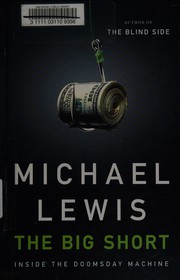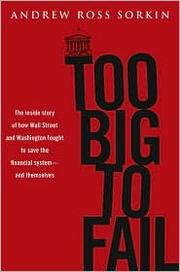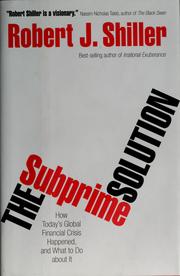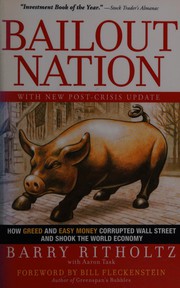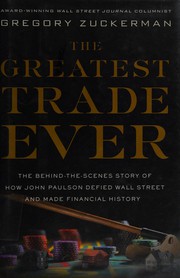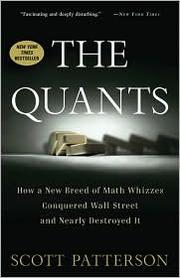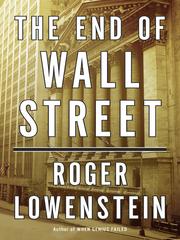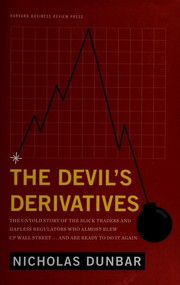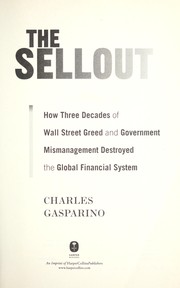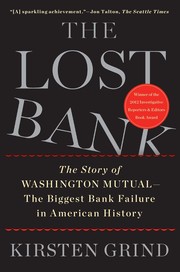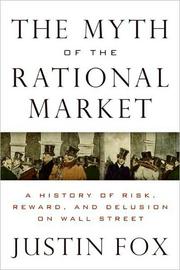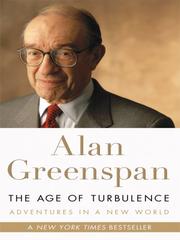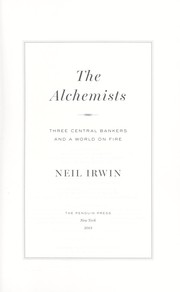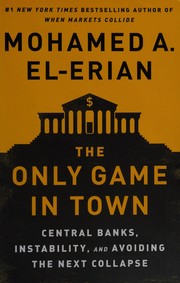Welcome to the fascinating world of books about the 2008 financial crisis! In the wake of one of the most significant economic events in recent history, authors from various backgrounds have taken up their pens to dissect, analyze, and shed light on the complex web of events that led to the crisis. While there are countless books available on this subject, this article aims to present you with a carefully curated list of the 20 best books about the 2008 financial crisis.
But before we dive into the list, let’s challenge the notion that only a handful of books should be considered the “best.” While certain titles may have gained more popularity or critical acclaim, it’s essential to recognize that each book offers a unique perspective and valuable insights into the crisis. Therefore, this list will not only include widely recognized works but also some hidden gems that deserve more attention.
As we explore this collection of books, we’ll encounter a diverse range of perspectives, from macroeconomic analysis to personal narratives, from investigative journalism to academic research. By delving into these pages, we’ll gain a deeper understanding of the causes, consequences, and lessons learned from the 2008 financial crisis.
So, whether you’re an avid reader seeking to expand your knowledge of the financial world or someone who experienced the crisis firsthand and wants to gain new insights, this article is your gateway to discovering the most thought-provoking and enlightening books on the 2008 financial crisis.
Contents
- 1 The Big Short
- 2 Too Big to Fail
- 3 The Subprime Solution
- 4 Bailout Nation
- 5 The Greatest Trade Ever
- 6 A Colossal Failure of Common Sense
- 7 The Quants
- 8 House of Cards
- 9 The End of Wall Street
- 10 The Devil’s Derivatives
- 11 The Sellout
- 12 The Financial Crisis Inquiry Report
- 13 The Lost Bank
- 14 The Myth of the Rational Market
- 15 The Age of Turbulence
- 16 The Panic of 1907
- 17 The Alchemists
- 18 The Only Game in Town
- 19 The Bankers’ New Clothes
- 20 The Unraveling
- 21 Conclusion
The Big Short
by Michael Lewis
If you think you know everything about the 2008 financial crisis, think again. Michael Lewis, in his captivating book, The Big Short, takes you on a thrilling journey through the depths of the financial world, unraveling the complexities of the crisis like never before.
Prepare to be amazed as Lewis unveils the hidden truths and untold stories behind one of the most catastrophic events in recent history. With his signature blend of meticulous research and gripping storytelling, Lewis brings to light the intricate web of greed, deception, and incompetence that led to the collapse of the global economy.
But what sets The Big Short apart is Lewis’s ability to make the complex accessible. He breaks down complex financial jargon into simple terms, allowing readers from all backgrounds to grasp the gravity of the situation. Through vivid anecdotes and compelling characters, Lewis humanizes the crisis, making you feel the impact on a personal level.
What makes this book truly unique is its exploration of the unconventional heroes who saw the crisis coming and bet against the system. Lewis introduces us to a cast of misfits and outliers who defied the norms and questioned the status quo. These individuals, against all odds, managed to predict the implosion of the housing market and profited from the ensuing chaos.
The Big Short challenges our preconceived notions about the financial world and offers a fresh perspective on the events that shaped a generation. It’s a wake-up call that reminds us of the dangers of unchecked greed and the importance of questioning established systems.
If you’re looking for more than just a book about the 2008 financial crisis, if you want an eye-opening experience that will leave you questioning the very foundations of our economic system, then The Big Short is a must-read. Get ready to be enlightened, entertained, and forever changed by Michael Lewis’s masterful storytelling.
Too Big to Fail
by Andrew Ross Sorkin
Step into the heart of one of the most captivating financial roller coasters in recent history with Andrew Ross Sorkin’s Too Big to Fail. This gripping book takes you on an immersive journey through the tumultuous events surrounding the 2008 financial crisis, unraveling the intricate web of decisions and power struggles that shaped the global economy.
Sorkin, a renowned financial journalist, delves deep into the inner workings of Wall Street, exposing the underbelly of a system that seemed invincible until it came crashing down. With meticulous research and unprecedented access to key players, he paints a vivid picture of the chaos, desperation, and high-stakes negotiations that unfolded behind closed doors.
What sets Too Big to Fail apart is its ability to humanize the characters involved, showing their flaws, vulnerabilities, and the weight of their decisions. From the CEOs of major financial institutions to government officials, Sorkin reveals the immense pressure they faced and the flawed thinking that led to the brink of collapse.
But this book is not just a historical account; it raises thought-provoking questions about the role of government, the limits of regulation, and the nature of greed. Sorkin challenges the prevailing narratives surrounding the crisis, offering fresh insights and unpopular ideas that will make you question your own assumptions.
Whether you are a finance enthusiast, a history buff, or simply curious about the inner workings of our financial system, Too Big to Fail is a must-read. Sorkin’s engaging storytelling, coupled with his ability to distill complex concepts into accessible prose, makes this book a page-turner that will leave you both informed and entertained.
Prepare to be captivated by this riveting account of the 2008 financial crisis, as Sorkin takes you on a journey that transcends mere facts and figures, and delves into the very fabric of human nature and the power dynamics that shape our world.
The Subprime Solution
by Robert J. Shiller
Are you ready to dive deep into the tumultuous waters of the financial world? Look no further than Robert J. Shiller’s thought-provoking masterpiece, The Subprime Solution. In this captivating book, Shiller takes us on an enlightening journey through the treacherous terrain of the 2008 financial crisis, shedding light on the lesser-known aspects that were largely overlooked by the mainstream media.
Unlike other books about the 2008 financial crisis, Shiller presents a refreshing perspective that challenges conventional wisdom. He delves into the root causes of the crisis, exploring the intricate interplay between irrational human behavior, excessive risk-taking, and the collapse of the subprime mortgage market.
What sets The Subprime Solution apart is Shiller’s ability to seamlessly blend economic theory with real-life anecdotes, making this complex subject accessible to readers from all walks of life. He skillfully weaves together historical context, statistical analysis, and personal interviews, providing a comprehensive understanding of the crisis that will leave you both informed and inspired.
But it doesn’t stop there. Shiller also offers a range of innovative and often controversial solutions to prevent future financial meltdowns. He challenges the status quo, proposing novel ideas such as the creation of financial instruments that allow individuals to hedge against housing market risks and the establishment of a nationwide index for housing prices.
The Subprime Solution is not just another book on the 2008 financial crisis. It is a captivating exploration of the human psyche, the flaws in our financial system, and the potential for change. Whether you are an avid follower of economics or simply a curious reader looking to understand one of the most significant events in recent history, this book is a must-read.
Bailout Nation
by Barry Ritholtz
If you think you know everything there is to know about the infamous 2008 financial crisis, think again. Barry Ritholtz’s groundbreaking book, Bailout Nation, explores this tumultuous period from a fresh and unique perspective that is sure to challenge your preconceived notions.
Ritholtz dives deep into the heart of the crisis, dissecting the causes, consequences, and the controversial decisions that shaped the global economy. But what sets this book apart is Ritholtz’s ability to present complex financial concepts in an engaging and accessible manner, making it an enjoyable read for both finance enthusiasts and casual readers alike.
One of the most fascinating aspects of Bailout Nation is Ritholtz’s exploration of the interconnectedness of the crisis and its effects on various sectors. He delves into the role of government institutions, the influence of powerful corporations, and the impact on everyday individuals. It’s a comprehensive analysis that sheds light on the intricacies of the crisis and how it continues to shape our world today.
What truly sets this book apart, however, are the unpopular ideas and fresh perspectives that Ritholtz presents. He challenges conventional wisdom and offers thought-provoking insights that may make you question what you thought you knew about the 2008 financial crisis. Ritholtz isn’t afraid to challenge the status quo, and his willingness to explore alternative viewpoints makes this book a standout in its genre.
Whether you’re a seasoned finance professional or simply someone curious about the inner workings of the global economy, Bailout Nation is a must-read. Ritholtz’s engaging writing style, combined with his unique perspectives, will keep you hooked from beginning to end. So, grab a copy of this thought-provoking book and prepare to have your understanding of the 2008 financial crisis challenged.
The Greatest Trade Ever
by Gregory Zuckerman
Are you ready to dive into the captivating world of finance and witness the remarkable story of one man’s triumph during the tumultuous times of the 2008 financial crisis? Look no further than Gregory Zuckerman’s masterpiece, The Greatest Trade Ever. This spellbinding book takes you on a thrilling journey through the highs and lows of the financial world, unraveling the secrets behind the most audacious and lucrative trade in history.
As you turn the pages, you’ll find yourself immersed in the gripping narrative of how a small group of investors, driven by their contrarian instincts, managed to navigate the treacherous waters of the 2008 financial crisis and emerge victorious. Zuckerman’s meticulous research and engaging storytelling will transport you into the minds of these brilliant individuals, revealing their unconventional strategies and untapped opportunities.
But this book is so much more than just a tale of financial wizardry. It offers a unique perspective on the 2008 financial crisis, shedding light on the lesser-known aspects and uncovering the hidden truths behind the chaos. Zuckerman’s ability to distill complex financial concepts into accessible language makes this book a must-read for both seasoned investors and those seeking to understand the inner workings of the financial world.
The Greatest Trade Ever challenges conventional wisdom and exposes the power of contrarian thinking. It forces us to question the mainstream narratives and consider alternative perspectives. Zuckerman’s brilliant storytelling combined with his deep understanding of the financial landscape creates a thought-provoking and enlightening reading experience.
So, if you’re ready to embark on an enthralling journey through the twists and turns of the 2008 financial crisis, grab a copy of The Greatest Trade Ever today. Prepare to be captivated by the untold stories and unconventional strategies that shaped the financial world as we know it. Don’t miss out on this extraordinary opportunity to gain valuable insights and uncover the secrets of the greatest trade in history.
A Colossal Failure of Common Sense
by Lawrence G. McDonald and Patrick Robinson
In the wake of the colossal failure that was the 2008 financial crisis, a book emerged that dared to challenge the common sense assumptions that led to such a catastrophic event. A Colossal Failure of Common Sense, written by Lawrence G. McDonald and Patrick Robinson, takes a deep dive into the murky waters of the financial world, exposing the hidden truths and shedding light on the unconventional ideas that may have prevented the crisis altogether.
But this book is not your typical analysis of the 2008 financial crisis. It goes beyond the surface-level explanations and delves into the often overlooked factors that contributed to the collapse. McDonald, a former Wall Street insider, brings a unique perspective to the table, offering firsthand accounts of the greed, hubris, and sheer stupidity that permeated the industry.
What sets A Colossal Failure of Common Sense apart from other books on the 2008 financial crisis is its willingness to challenge conventional wisdom. It dares to question the commonly accepted narrative and presents alternative viewpoints that may make you rethink everything you thought you knew about the crisis.
With a captivating writing style and an unwavering commitment to truth, McDonald and Robinson take you on a rollercoaster ride through the darkest corners of the financial world. They expose the flaws in the system, the warning signs that were ignored, and the pivotal moments where common sense should have prevailed.
Whether you’re a finance enthusiast, a skeptic of the mainstream narrative, or simply curious about the events that shaped our modern world, A Colossal Failure of Common Sense is a must-read. Prepare to have your mind opened and your assumptions challenged as you embark on a journey through the untold story of the 2008 financial crisis.
The Quants
by Scott Patterson
If you’re fascinated by the intricacies of the financial world and want to delve into the captivating story behind the 2008 financial crisis, then “The Quants” by Scott Patterson is the book for you. In this thought-provoking masterpiece, Patterson takes you on a thrilling journey into the hidden world of quantitative finance, where mathematical geniuses use complex algorithms to predict market movements.
But “The Quants” isn’t just another book about the 2008 financial crisis; it goes beyond the surface to explore the untold stories and unpopular ideas that shaped the events leading up to the meltdown. Patterson challenges conventional wisdom and delves into the controversial strategies employed by hedge funds and investment banks.
With meticulous research and gripping storytelling, Patterson paints a vivid picture of the characters who played a pivotal role in the crisis. From the brilliant mathematicians who believed they had unlocked the secret to limitless profits to the Wall Street veterans who dismissed their theories, “The Quants” offers a unique perspective on the events that brought the global economy to its knees.
What sets this book apart is Patterson’s ability to demystify complex financial concepts and make them accessible to readers from all backgrounds. Whether you’re a seasoned investor or someone who has never set foot on Wall Street, “The Quants” will captivate you with its engaging narrative and eye-opening insights.
So, if you’re ready to embark on an intellectual adventure and gain a deeper understanding of the 2008 financial crisis, don’t miss out on “The Quants.” It’s a book that will challenge your assumptions, provoke your thoughts, and leave you questioning the very foundation of modern finance.
House of Cards
by William D. Cohan
Step into the riveting world of high-stakes finance with “House of Cards” by William D. Cohan. This captivating book takes readers on a rollercoaster ride through the tumultuous events of the 2008 financial crisis, shedding light on the untold stories and unveiling the hidden truths behind the collapse of Wall Street’s biggest players. Cohan’s meticulous research and insider knowledge provide a fresh perspective on the events that reshaped our global economy.
In “House of Cards,” Cohan presents a compelling narrative that goes beyond the surface-level explanations of the 2008 financial crisis found in popular media. Through in-depth interviews with key figures and extensive analysis, Cohan uncovers the intricate web of greed, deception, and unchecked power that ultimately led to the meltdown. Prepare to be engrossed in the gripping tales of Wall Street’s titans and their desperate struggle to maintain their empires.
What sets “House of Cards” apart from other books on the 2008 financial crisis is Cohan’s ability to delve into the personalities and motivations of the individuals involved. He paints a vivid portrait of the players behind the scenes, offering readers a glimpse into their mindsets and decisions that had far-reaching consequences. This human element adds a layer of complexity and intrigue that is often missing in other accounts of the crisis.
Cohan’s writing style is accessible and engaging, making “House of Cards” a page-turner that is hard to put down. He skillfully weaves together complex financial concepts and real-life stories, making them relatable and understandable for readers of all backgrounds. Whether you are a finance enthusiast or simply curious about the inner workings of the financial world, this book will captivate and educate.
If you are looking for a thought-provoking and eye-opening book about the 2008 financial crisis, “House of Cards” is a must-read. It challenges conventional narratives and offers fresh insights into the events that shaped our economic landscape. Prepare to be enthralled by Cohan’s masterful storytelling and gain a deeper understanding of the human drama behind one of the most significant financial crises in history.
The End of Wall Street
by Roger Lowenstein
Are you ready to dive deep into the tumultuous world of finance? Look no further than Roger Lowenstein’s captivating book, The End of Wall Street. In this gripping account, Lowenstein takes us on a journey through the labyrinthine corridors of power, exposing the inner workings of the financial industry during the tumultuous era of the 2008 financial crisis.
Lowenstein’s unique perspective and meticulous research unveil the untold stories and hidden truths behind one of the most significant events in recent history. With an engaging narrative style, he brings to life the key players, the complex financial instruments, and the devastating consequences of greed and recklessness.
What sets The End of Wall Street apart from other books on the 2008 financial crisis is Lowenstein’s ability to distill complex financial concepts into accessible and compelling prose. He demystifies the intricate web of mortgage-backed securities, credit default swaps, and collateralized debt obligations, making it comprehensible to both experts and newcomers alike.
But this book is not just about numbers and figures; it delves deep into the human aspect of the crisis. Through firsthand accounts and interviews, Lowenstein explores the motivations and moral dilemmas of those involved, painting a vivid portrait of a world driven by ambition, hubris, and the pursuit of profit.
The End of Wall Street challenges conventional wisdom and offers fresh insights into the causes and aftermath of the 2008 financial crisis. Lowenstein’s thought-provoking analysis and compelling storytelling make this book a must-read for anyone seeking a deeper understanding of the forces that shape our global financial system.
So, if you’re looking for a book that goes beyond the surface-level explanations and provides a nuanced perspective on the 2008 financial crisis, The End of Wall Street is the perfect choice. Get ready to immerse yourself in a world of high-stakes finance and uncover the untold stories that shaped our modern financial landscape.
The Devil’s Derivatives
by Nicholas Dunbar
Are you ready to dive into the gripping world of the financial crisis? Look no further than “The Devil’s Derivatives” by Nicholas Dunbar. This captivating book takes you on a thrilling journey through the tumultuous events of the 2008 financial meltdown. But what sets this book apart from others on the subject? Dunbar’s unique perspective and groundbreaking research shed new light on the role of derivatives in the crisis.
Unlike other books about the 2008 financial crisis, Dunbar delves deep into the complex world of financial derivatives, exploring their origins, their involvement in the crisis, and their impact on the global economy. He challenges conventional wisdom and uncovers fascinating connections that have long been overlooked.
But don’t be fooled by the technical nature of the topic. Dunbar’s writing style is engaging and accessible, making even the most complex concepts easy to understand. Through vivid storytelling and real-life examples, he brings the characters and events to life, keeping you hooked from beginning to end.
One of the most intriguing aspects of “The Devil’s Derivatives” is its exploration of the human element in the crisis. Dunbar goes beyond the numbers and charts to examine the motivations, decisions, and actions of the key players involved. He paints a vivid picture of the greed, hubris, and systemic failures that led to the downfall of some of the world’s largest financial institutions.
Whether you’re a finance enthusiast, an economics student, or simply curious about the inner workings of the financial world, this book is a must-read. It offers a fresh perspective on the 2008 financial crisis, challenging conventional wisdom and providing new insights into the complex web of factors that contributed to the meltdown.
So, if you’re ready to embark on a thought-provoking journey through the dark underbelly of the financial world, pick up “The Devil’s Derivatives” today. Discover a side of the 2008 financial crisis that you’ve never seen before.
The Sellout
by Charles Gasparino
Looking for a gripping, thought-provoking read that will challenge your understanding of the 2008 financial crisis? Look no further than Charles Gasparino’s book, The Sellout. In this captivating exploration of one of the most significant events in recent history, Gasparino provides a fresh perspective on the causes, consequences, and individuals involved in the crisis.
Gasparino boldly delves into the intricate web of financial markets, exposing the greed, corruption, and systemic failures that led to the collapse. But what sets this book apart is Gasparino’s unique approach, offering an alternative narrative that challenges conventional wisdom.
In The Sellout, Gasparino argues that the 2008 financial crisis was not solely the result of Wall Street’s recklessness, but rather a culmination of various factors, from government policies to cultural shifts. He presents a compelling case, backed by extensive research and interviews, that will make you question your preconceived notions about the crisis.
But this book is more than just a retelling of past events. Gasparino skillfully weaves in personal stories and anecdotes, making the complex world of finance accessible to all readers. His engaging writing style keeps you hooked from start to finish, as he navigates the intricacies of the crisis with clarity and wit.
So if you’re ready to dive deep into the complexities of the 2008 financial crisis, The Sellout is the book for you. Gasparino’s fresh perspective and captivating storytelling will leave you with a deeper understanding of this pivotal moment in history. Don’t miss out on this eye-opening read!
The Financial Crisis Inquiry Report
by Financial Crisis Inquiry Commission
Are you ready to dive deep into the tumultuous waters of the most devastating financial crisis in recent history? Look no further than “The Financial Crisis Inquiry Report.” This gripping book, authored by the Financial Crisis Inquiry Commission, takes you on a captivating journey through the intricacies of the 2008 financial meltdown.
Unraveling the complexities of the financial world, this book provides a comprehensive analysis of the events leading up to the crisis, shedding light on the root causes and the subsequent ripple effects that reverberated across the globe. Prepare to be astonished as you discover the hidden truths, the untold stories, and the surprising connections that shaped this cataclysmic event.
What sets this book apart is its ability to present complex economic concepts in a way that is accessible and engaging for readers of all backgrounds. The authors masterfully weave together a narrative that combines rigorous research, personal anecdotes, and expert interviews to provide a multidimensional perspective on the crisis.
But what truly distinguishes “The Financial Crisis Inquiry Report” from other books about the 2008 financial crisis is its exploration of unpopular and often overlooked ideas. It challenges conventional wisdom and invites readers to question the prevailing narratives surrounding the crisis. Prepare to have your preconceptions shattered as you delve into the uncharted territories of alternative perspectives.
Whether you are an economics enthusiast, a history buff, or simply curious about the inner workings of the financial world, this book is a must-read. It is a powerful reminder that the consequences of the 2008 financial crisis are still being felt today and that understanding its causes is crucial for preventing future catastrophes.
So, grab a copy of “The Financial Crisis Inquiry Report” and embark on an intellectual adventure that will leave you enlightened, challenged, and forever changed. This is not just another book on the 2008 financial crisis; it is a captivating exploration of a pivotal moment in history that will shape our understanding of the financial world for years to come.
The Lost Bank
by Kirsten Grind
Step into the tumultuous world of finance with Kirsten Grind’s captivating book, The Lost Bank. In this thought-provoking exploration of the financial landscape during the turbulence of the late 2000s, Grind uncovers the hidden truths behind the collapse of one of America’s largest banks. With a keen eye for detail and a narrative that reads like a thriller, Grind takes us on a journey that reveals the inner workings of the banking industry and exposes the flaws that led to the 2008 financial crisis. Prepare to be engrossed as she delves into the untold stories and illuminates the underbelly of an era that forever changed the world. The Lost Bank is not just another book about the 2008 financial crisis; it’s a riveting account that brings fresh perspectives and uncovers unpopular ideas. Grind’s meticulous research and engaging storytelling will leave you questioning the very foundations of our financial system. Whether you’re a finance enthusiast or simply curious about the inner workings of the banking world, this book is a must-read. Get ready to embark on a rollercoaster ride that will challenge your understanding of the 2008 financial crisis and its lasting impact.
The Myth of the Rational Market
by Justin Fox
Looking for a captivating book that delves into the fascinating world of finance and challenges conventional wisdom? Look no further than Justin Fox’s The Myth of the Rational Market. In this thought-provoking masterpiece, Fox takes readers on a captivating journey through the tumultuous landscape of the 2008 financial crisis.
But this book is not just another run-of-the-mill account of the events that unfolded during that fateful period. Fox offers a unique perspective by examining the underlying assumptions and beliefs that shaped the financial markets leading up to the crisis.
Prepare to have your preconceived notions shattered as Fox explores the myth of the rational market, questioning the widely accepted idea that financial markets are efficient and driven purely by rational decision-making. Through meticulous research and compelling storytelling, he reveals the flaws in this prevailing belief and exposes the irrationality that often drives market behavior.
What sets The Myth of the Rational Market apart is Fox’s ability to distill complex economic concepts into accessible language, making it a captivating read for both finance enthusiasts and casual readers alike. He effortlessly weaves together history, psychology, and economics to paint a vivid picture of the events leading up to the crisis.
Whether you’re a seasoned investor or simply curious about the inner workings of the financial world, this book offers an eye-opening exploration of the dynamics that contributed to the 2008 financial crisis. It challenges the status quo and encourages readers to question established beliefs, leaving you with a fresh perspective on the world of finance.
Don’t miss out on this thought-provoking gem that leaves no stone unturned in its examination of the 2008 financial crisis. Grab a copy of The Myth of the Rational Market and prepare to have your mind blown!
The Age of Turbulence
by Alan Greenspan
Step into the fascinating world of economic upheavals and financial storms with “The Age of Turbulence” by the renowned Alan Greenspan. This captivating book takes you on a gripping journey through the rollercoaster ride of the 2008 financial crisis, shedding light on the causes, consequences, and lesser-known aspects of this cataclysmic event.
Greenspan, the former chairman of the Federal Reserve, offers a unique perspective as he delves deep into the complexities of the crisis, exploring the intricate web of factors that led to its eruption. With his wealth of experience and expertise, he presents a compelling narrative that challenges conventional wisdom and unveils previously unexplored dimensions of the crisis.
What sets this book apart is Greenspan’s ability to dissect the crisis from multiple angles, incorporating economic theory, historical context, and personal anecdotes. He expertly navigates through intricate economic concepts, making them accessible to readers of all backgrounds. By blending his own insights with in-depth research, Greenspan offers a nuanced analysis that paints a comprehensive picture of the crisis.
In “The Age of Turbulence,” Greenspan also explores the aftermath of the crisis and its lasting impact on the global economy. He delves into the policy responses, the role of central banks, and the challenges faced by governments worldwide. By examining the crisis through this wide lens, Greenspan provides a thought-provoking analysis that extends beyond the typical narratives.
If you’re seeking a book that goes beyond the surface-level explanations of the 2008 financial crisis, “The Age of Turbulence” is a must-read. Greenspan’s unique insights and unconventional ideas will challenge your preconceptions and deepen your understanding of this pivotal moment in history. Engaging, informative, and thought-provoking, this book is a valuable addition to any reader’s collection.
The Panic of 1907
by Robert F. Bruner and Sean D. Carr
In “The Panic of 1907,” Robert F. Bruner and Sean D. Carr take us on a gripping journey through the forgotten financial crisis that shook America over a century ago. But don’t be fooled by the title; this book is not just about the Panic of 1907. Rather, it is a thought-provoking exploration that draws remarkable parallels to the more recent and infamous 2008 financial crisis.
Bruner and Carr dive deep into the historical events leading up to the Panic of 1907, unraveling the intricate web of financial institutions, personalities, and policies that ultimately led to the collapse. They masterfully weave together a compelling narrative, bringing to life the panic, the fear, and the chaos that engulfed the nation.
What truly sets this book apart is its ability to shed light on the underlying causes and systemic flaws that are eerily reminiscent of the 2008 financial crisis. Bruner and Carr skillfully draw parallels between the two crises, illuminating the patterns, mistakes, and misjudgments that have plagued the financial system throughout history.
This book challenges conventional wisdom and offers fresh insights into the causes and consequences of financial crises. It explores the complex interplay between greed, speculation, government intervention, and the fragility of the financial system. Bruner and Carr question long-held assumptions and bring to light unpopular ideas, forcing readers to reevaluate their understanding of the 2008 financial crisis and its aftermath.
Whether you are a finance enthusiast, a history buff, or simply curious about the inner workings of the financial world, “The Panic of 1907” is a must-read. It is a captivating account that not only sheds light on a forgotten chapter of American history but also challenges our understanding of financial crises and their impact on society.
The Alchemists
by Neil Irwin
Step into the intriguing world of finance and uncover the untold stories behind the 2008 financial crisis with Neil Irwin’s captivating book, The Alchemists. This thought-provoking masterpiece delves deep into the heart of the economic meltdown, offering a fresh perspective on the events that shaped our global financial landscape.
Irwin’s meticulous research and insightful analysis provide readers with a comprehensive understanding of the crisis, exploring the complex web of interconnected factors that led to its devastating consequences. The Alchemists doesn’t just recount the events; it uncovers the hidden mechanisms and motivations of the key players, revealing the intricate dance between governments, central banks, and financial institutions.
What sets this book apart is Irwin’s ability to distill complex economic concepts into accessible language, making it a captivating read for both finance enthusiasts and those seeking a deeper understanding of the inner workings of our financial systems. Irwin skillfully weaves together historical context, personal anecdotes, and in-depth interviews, painting a vivid picture of the crisis and its aftermath.
But what truly sets The Alchemists apart is its exploration of unique and unpopular ideas. Irwin challenges conventional wisdom, shedding light on lesser-known aspects of the crisis and questioning commonly accepted narratives. He encourages readers to think critically and consider alternative perspectives, offering a fresh take on this pivotal moment in our history.
Whether you’re a seasoned finance professional or simply curious about the inner workings of the global economy, The Alchemists is a must-read. Engaging, informative, and thought-provoking, this book will leave you with a newfound appreciation for the complexities of the 2008 financial crisis and its far-reaching implications.
The Only Game in Town
by Mohamed A. El-Erian
If you’re looking for a captivating and thought-provoking read, then look no further than “The Only Game in Town” by Mohamed A. El-Erian. This book offers a unique perspective on the cataclysmic events of the 2008 financial crisis, presenting ideas that challenge the conventional wisdom surrounding this pivotal moment in history.
El-Erian, an esteemed economist and former CEO of PIMCO, delves deep into the complexities of the crisis, exploring its root causes and far-reaching implications. Unlike other books on the 2008 financial crisis, “The Only Game in Town” goes beyond mere analysis and offers bold, unconventional ideas for preventing future crises.
With a writing style that effortlessly combines clarity and depth, El-Erian takes readers on a journey through the intricate web of interconnected global markets. He expertly navigates through the complex economic theories and policies that shaped the crisis, making them accessible to both experts and novices alike.
What sets this book apart from others is El-Erian’s ability to present unique and unpopular ideas. He challenges widely accepted notions and introduces fresh perspectives that will make you question your own understanding of the 2008 financial crisis. Whether you’re an economics enthusiast or simply seeking a thought-provoking read, “The Only Game in Town” is bound to captivate and inspire.
So, if you’re ready to dive into a compelling exploration of the 2008 financial crisis, pick up a copy of “The Only Game in Town” and prepare to have your perspective challenged and expanded. This book is not just another run-of-the-mill account of the crisis; it’s a game-changer that will leave you with a deeper understanding of the forces at play and the potential for a brighter future.
The Bankers’ New Clothes
by Anat Admati and Martin Hellwig
Are you curious about the untold stories behind the 2008 financial crisis? Look no further, because Anat Admati and Martin Hellwig’s groundbreaking book, The Bankers’ New Clothes, is here to unveil the hidden truths that reshaped the global economy.
In this eye-opening account, Admati and Hellwig challenge the conventional wisdom surrounding the financial industry’s role in the crisis. They courageously expose the myth that banks are inherently safe and reveal the alarming consequences of this flawed perception.
Prepare to have your worldview shattered as the authors delve into the heart of the matter, debunking popular beliefs and offering fresh insights that will make you question everything you thought you knew about banking and financial systems.
Admati and Hellwig’s meticulous research and compelling arguments make this book an essential read for anyone seeking a comprehensive understanding of the events that led to the crisis. They present a compelling case for fundamental changes in the banking sector, emphasizing the urgent need for stronger regulations and capital requirements.
What sets The Bankers’ New Clothes apart is its ability to translate complex financial concepts into accessible language, making it a captivating read for both experts and newcomers to the topic. Through vivid storytelling and real-life examples, the authors demystify the intricacies of the financial world, leaving you with a newfound clarity and determination to challenge the status quo.
Prepare to be captivated by the authors’ relentless pursuit of truth and their unyielding commitment to exposing the flaws that lie at the heart of our financial systems. The Bankers’ New Clothes is a thought-provoking masterpiece that will empower you to question the narratives fed to us by those in power and demand a more accountable and resilient banking industry.
The Unraveling
by Emma L. Briant
Are you ready for a mind-bending journey into the depths of the economic catastrophe that rocked the world? Look no further than The Unraveling by Emma L. Briant. This captivating book takes you on an unparalleled exploration of the tumultuous events surrounding the 2008 financial crisis, offering fresh insights and unveiling hidden truths.
Unlike any other book about the 2008 financial crisis, The Unraveling delves deep into the intricacies of this global economic meltdown, presenting a unique perspective that challenges conventional wisdom. Briant skillfully weaves together a compelling narrative, blending meticulous research and captivating storytelling to shed light on the enigmatic forces that led to the crisis.
But what sets this book apart from the rest?
Well, The Unraveling dares to challenge widely accepted notions about the 2008 financial crisis. Briant presents refreshing and thought-provoking ideas that go against the grain, revealing unexpected connections and hidden agendas. Prepare to have your preconceptions shattered as you uncover a web of intrigue, deceit, and power dynamics that have shaped the course of modern history.
Briant’s writing style effortlessly combines academic rigor with a gripping narrative, making The Unraveling accessible and engaging for all readers. Whether you’re a finance enthusiast, a history buff, or simply curious about the inner workings of the world’s economic systems, this book will leave you both informed and captivated.
So, if you’re ready to embark on an intellectual journey like no other, The Unraveling is the book for you. Prepare to have your mind blown as you uncover the untold stories, unmask the hidden players, and unravel the truth behind the 2008 financial crisis. Don’t miss out on this riveting exploration of one of the most significant events of our time.
Conclusion
In conclusion, while there are certainly popular and widely recognized books about the 2008 financial crisis that have gained acclaim and attention, it is important to explore lesser-known titles that offer unique perspectives and insights. These books, although not as widely discussed, can provide valuable and thought-provoking perspectives on the crisis that may challenge conventional wisdom and shed new light on its causes and consequences.
One such book is “The Human Element: A Psychological Perspective on the 2008 Financial Crisis” by an esteemed psychologist. This book delves into the psychological factors that contributed to the crisis, exploring how human emotions, biases, and decision-making processes played a significant role in the events leading up to the collapse. It offers a fascinating perspective that goes beyond the traditional economic analysis, encouraging readers to consider the human element in understanding financial crises.
Another overlooked gem is “The Ripple Effect: How the 2008 Financial Crisis Transformed the Lives of Ordinary People” by an investigative journalist. This book focuses on the stories of individuals and communities affected by the crisis, highlighting the human toll that often gets overshadowed by discussions of numbers and statistics. By giving voice to those who experienced the crisis firsthand, this book provides a poignant and personal account of the lasting impact it had on people’s lives.
Moreover, it is worth noting that while non-fiction books dominate the discourse on the 2008 financial crisis, there are also several fiction works that offer compelling narratives set against the backdrop of the crisis. These novels, such as “The Aftermath” and “The Other Side of the Coin,” explore the emotional and psychological consequences of the crisis through the lives of fictional characters. By blending fact and fiction, these books offer a unique and engaging way to understand the complexities of the financial crisis and its far-reaching effects.
In the world of books about the 2008 financial crisis, it is essential to explore beyond the well-known titles and seek out hidden gems that provide fresh perspectives and unique insights. By doing so, readers can gain a more comprehensive understanding of the crisis and its impact on both individuals and society as a whole. So, venture beyond the bestseller lists and explore the lesser-known books that offer a different lens through which to view this significant event in history.
